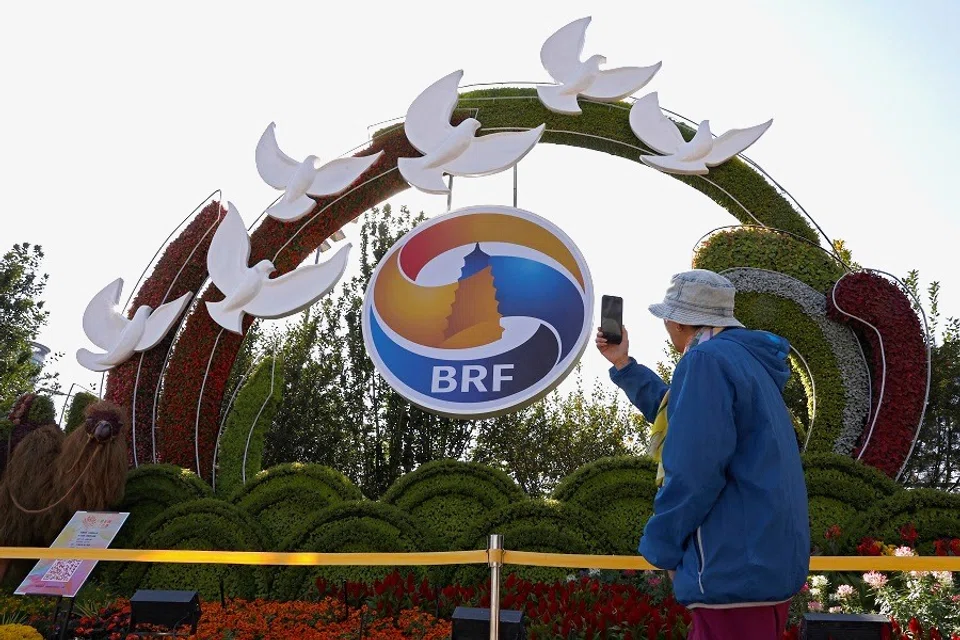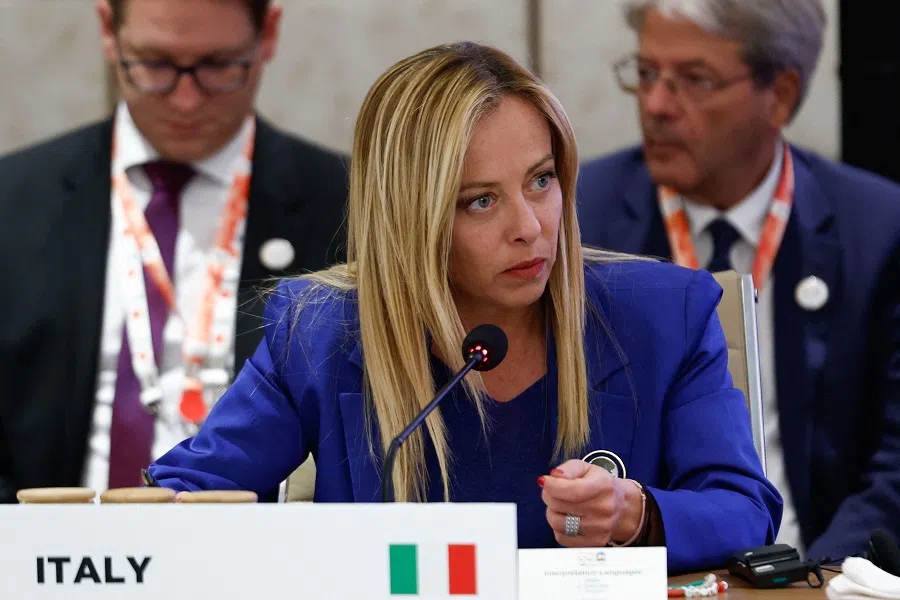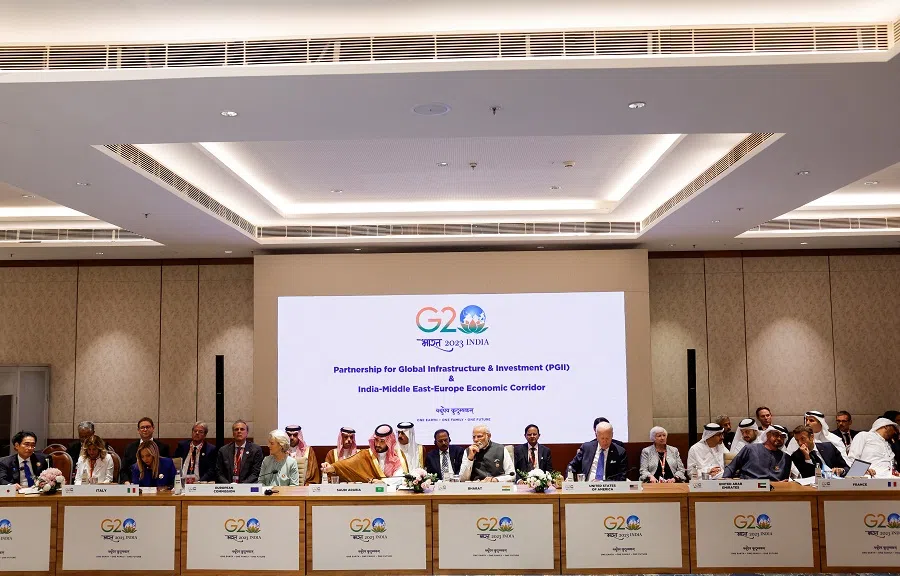What Italy's likely exit from the BRI says about its relations with China
While Italy's imminent withdrawal from the BRI is a symbolic setback, the country still plans to engage China and reap the economic benefits. Would this be easier said than done with the departure from the MOU ruffling the Chinese and the need to keep within the lines drawn by the EU? Italian academic Alessandro Albana examines the issue.

Just as the Belt and Road (BRI) celebrates its tenth year, with China hosting the third Belt and Road Forum for International Cooperation in Beijing on 17-18 October, Italy is preparing to exit from the initiative, after only five years.
In March 2019 in Rome, the signing of a memorandum of understanding (MOU) between China and Italy on the BRI made headlines, raising apprehension in the US and especially among EU countries. In fact, the inking of the MOU made Italy the only G7 country and EU founding member state to take part in the initiative. The MOU has a validity of five years, after which it is automatically renewed unless one of the two parties officially notifies its intention not to extend its terms.
Pursuing economic benefits outside of the MOU
The decision on the part of the Italian authorities is not surprising.
Prime Minister Giorgia Meloni - leader of the right-wing coalition that formed the Italian Cabinet after the general elections in September 2022 - criticised Rome's membership in the BRI several times during the electoral campaign, describing the MOU as a "big mistake". Earlier during the summer, Defence Minister Guido Crosetto described Rome's decision to join the BRI as an "improvised and atrocious act".
In September this year, prior to his visit to China, Italian Minister of Foreign Affairs Antonio Tajani stated that the BRI did not deliver on its promises and bore no substantial gains to Italy. Soon afterwards, Prime Minister Meloni unofficially informed China's Premier Li Qiang that Italy would not renew the MOU on the BRI. Disappointment, if not apprehension, has been voiced by Rome's Enterprise Minister Adolfo Urso, who went so far as to describe the MOU as a deal implying a strategic alliance between China and Italy.
Under such circumstances, it is only a matter of time before Italian authorities officially communicate to the Chinese that the MOU will not be extended for five additional years.
... Italy expected to gain more from its commercial relations with, and foreign direct investments from, China within the framework of the BRI. To date, such ambitions remain unfulfilled...

Meloni's and Tajani's criticisms toward the inefficacy of the MOU (and, therefore, the BRI) in bringing about positive results for Italy are shared by many, if not all, political groups within the government and the parliament.
Based on the current political narrative, the core target of that criticism has an economic nature: Italy expected to gain more from its commercial relations with, and foreign direct investments from, China within the framework of the BRI. To date, such ambitions remain unfulfilled, and there is no reasonable ground for Italy to continue to take part in the initiative.
In this scenario, Italian authorities rushed to make clear that the exit from the BRI is not intended to hold a political stance whereby economic relations with Beijing will be downsized. On the contrary, representatives of the right-wing coalition in Rome called for the improvement of bilateral economic relations outside the BRI framework. Cases of positive and improving economic relations without any membership in the BRI, such as France and Germany, have been cited to substantiate this possibility.
International politics a factor
Notwithstanding the above, economic considerations alone can hardly suffice to understand the rationale behind Italy's move. In fact, Rome's right-wing government actively pursues a number of initiatives and processes aimed at prioritising transatlantic relations and the firm support of NATO's strategic vision and military actions.
Recent examples include Meloni's announcement at the G20 in New Delhi that Rome will join the Partnership for Global Infrastructure and Investment that aims to promote the India-Middle-East-Europe Economic Corridor (IMEC), which seems antagonistic to the BRI. Other - if less ambitious - initiatives have seen active interest on the part of Rome, signalling Italy's growing attraction toward diplomatic, economic and security platforms where China is seen as a competitor, if not a rival.
The exit from the BRI reveals Rome's ambition to gain diplomatic credit and political credibility vis-à-vis its Western partners, including the EU.

The government led by Prime Minister Meloni is reaffirming a clear alignment of Italy's foreign policy with NATO and the US, as seen by Rome's stance on the war in Ukraine and, more recently, concerning the conflict between Israel and Palestine. The exit from the BRI reveals Rome's ambition to gain diplomatic credit and political credibility vis-à-vis its Western partners, including the EU.
Despite the relevant political differences, as far as foreign policy orientations are concerned, the current government in Rome seems to mark no significant discontinuity with the former led by Mario Draghi. Tellingly, Prime Minister Draghi enforced on several occasions the so-called "golden power", a legislative device employed to limit or prevent foreign actors from acquiring or investing in local/national companies in Italy whose business has significant implications for national security. In the majority of cases, Draghi resorted to the golden power against Chinese companies.
The emergence - or rather, the consolidation - of such political orientations has a number of reasons. In a nutshell, it is a matter of fact that Italy has not gained as much as expected from its membership in the BRI. If China's efforts in this context have been weak, much of the responsibility lies upon the Italian authorities' naivety (to say the least).
For instance, the MOU with China does not include any clear commitment on the part of China to provide more investments to Italy. Secondly, the short-lived government coalition (formed by the right-wing League and the populist Five-Star Movement) that paved the way for the MOU, and seemed to look at China with growing interest, even in the political realm, constitutes an exception in Italy's recent political history. All the more considering that the "push" toward China was not shared widely within the ruling coalition, but supported by very few politicians only.
Aligning with the EU
Italy's approach appears consistent with the strategic vision that the EU is shaping concerning its relationship with China. In the past year, the EU has adopted the so-called de-risking as the prism of its foreign policy toward China.
As the High Representative of the EU for Foreign Affairs and Security Policy Josep Borrell made clear during a recent visit to China in preparation for the EU-China Strategic Dialogue, de-risking is a matter of "reducing excessive dependencies", but it does not mean a "conspiracy against our trade relationship". However, despite Borrell's assurance that space for cooperation exists despite persisting controversies, EU-China diplomatic relations have navigated dire straits in recent years.
... the Italian government's emerging approach toward China is yet to be inscribed into a comprehensive and consistent official strategy, making Italy's stance uncertain and weak.
In that context, EU member states such as France and Germany seem capable of supporting the EU's stance concurrently while maintaining some room for manoeuvre for themselves, as seen from the unsurprising circumstance that both countries drafted an official national strategy on China.
In contrast, while looking seemingly coherent with the EU's - the Italian government's emerging approach toward China is yet to be inscribed into a comprehensive and consistent official strategy, making Italy's stance uncertain and weak.

Rome's trumpeted exit from the BRI provides interesting elements for a broader and more comprehensive understanding of Italy's approach to China under the Meloni government.
Italian authorities seem to see China mostly, if not only, in light of the economic opportunities it can provide. Rome has some reason to complain about the absence of significant trade and investment gains from its participation in the BRI. In addition, the MOU is not a diplomatic agreement, but a framework where a programme for cooperation is set in rather general terms; while symbolically important, pulling out from a MOU can hardly be seen as a dramatic setback.
But the message from Italy rings loud and clear: Rome shapes its foreign policy and strategic vision looking at the Western hemisphere, its allies, institutions and organisations. However, while it is legitimate for it to manage its foreign policy in this manner, it seems a bit hasty to enforce such moves in a very short time span of one year.
A setback for Beijing
In terms of immediate economic impact, there seems no reason to believe that Rome will lose anything substantial after dropping out of the BRI. But for China, Italy's membership in the initiative - as a big economic market, a G7 country, and an EU founding member - represented a diplomatic flagship.
Beijing, as stated by Foreign Minister Wang Yi and the PRC ambassador in Rome, Jia Guide, cannot be happy with that decision. China seems to be losing face and diplomatic clout. But being bothered does not amount to being humiliated, all the more considering that the diplomatic prestige of a MOU is not relevant.
Such considerations might somehow guide China's future approach to Italy, but not to the point that bilateral relations will change substantially. That said, as Italy represents the only Western player of its kind to have taken part in the BRI, such a departure cannot but provide some headache in Beijing.
Italy's right-wing ruling coalition seems to see in the country's traditional partners, in Europe and over the Atlantic, the safest shelter against mounting unpredictability in the global scenario.
If the past years saw the relationship between China, Europe and the US navigating troubled waters, room for cooperation still exists. For now, however, Italy seems not to be so much interested in that, instead prioritising economic relations and giving little attention to establishing new opportunities for cooperation with Beijing in the diplomatic, political and even cultural realms.
Much of this has to do with the international environment. The growing instability in the global context is not going unnoticed in Rome. Despite its longstanding vehement criticism toward the EU, Italy's right-wing ruling coalition seems to see in the country's traditional partners, in Europe and over the Atlantic, the safest shelter against mounting unpredictability in the global scenario.





